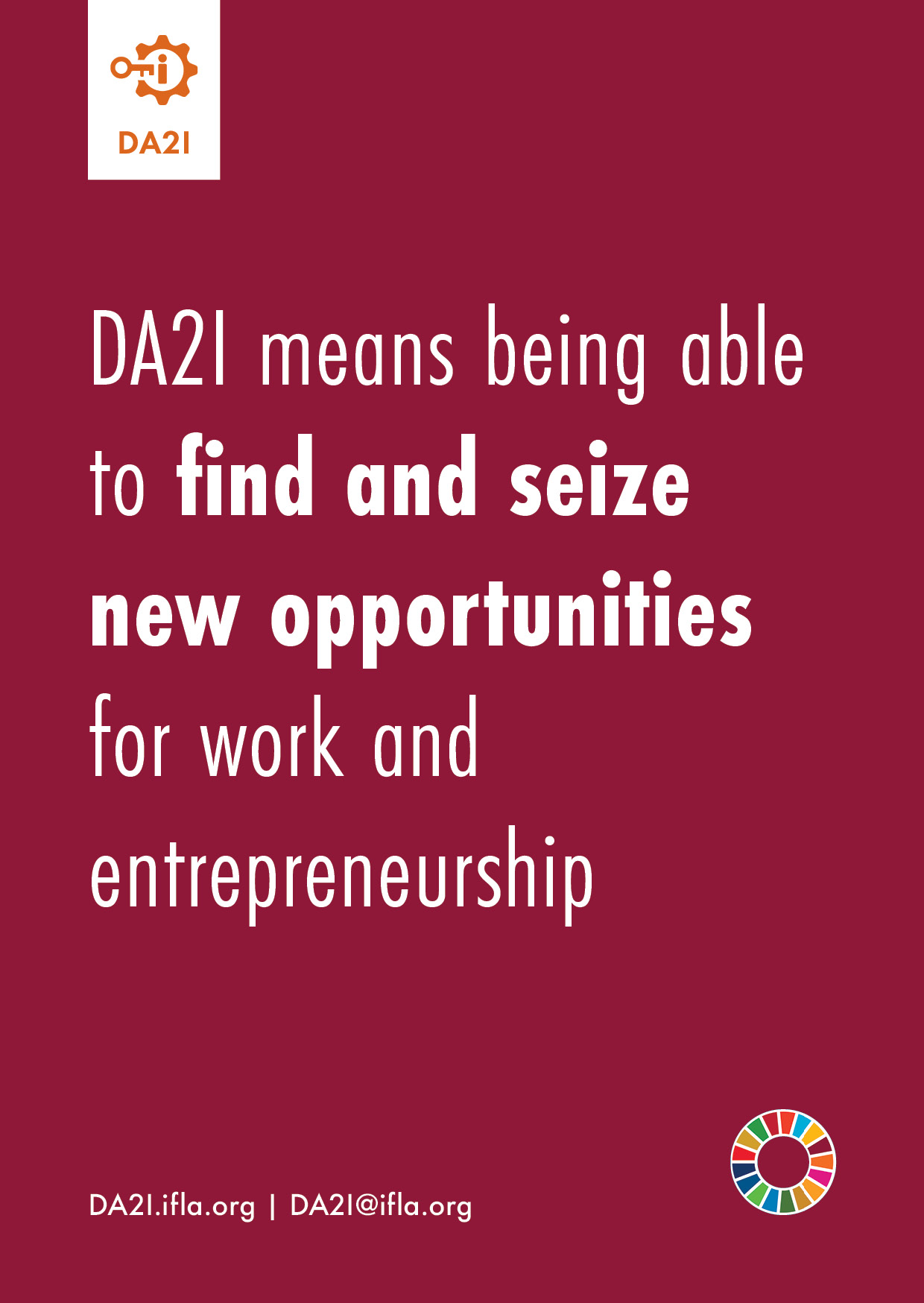 Sustainable Development Goal 8 is the second of the SDGs to be explored this year. It focuses on promoting sustained, inclusive and sustainable economic growth, full and productive employment and decent work for all.
Sustainable Development Goal 8 is the second of the SDGs to be explored this year. It focuses on promoting sustained, inclusive and sustainable economic growth, full and productive employment and decent work for all.
Through their work to provide access to information in communities, including to some of their most vulnerable members, libraries can be a gateway to opportunity. Both indirectly – through promoting inclusion and wellbeing – and directly through training and job-search support – our institutions can make a real contribution to delivering on SDG 8.
Labour and employment ministries therefore have an interest in effective libraries.
But what arguments can you use to convince them?
Here are three ideas showing why libraries have a unique role in achieving SDG 8:
- Because employment schemes only work if people know about them: like any market, the job market only works when people know about the opportunities out there. Yet half the world’s population does not have internet access or aren’t confident online. Libraries are not only places where people can connect, but also can receive support and guidance on where to find possibilities to help them find jobs.
- Because those who need support most can be the hardest to reach: for many, going to a job centre is associated with stigma. Others, especially those from marginalised groups, feel uneasy going into official buildings, or even are not entitled to formal support. Libraries are often seen differently, with people readier to use them. As such, they can provide an excellent place to provide services to many of the most vulnerable in society.
- Because skills matter: developing new and more advanced skills is a necessity for everyone, not only in order to respond to technological and economic change, but also to find better quality, more fulfilling work. Yet those who have left school risk can risk struggling to reconnect to education. Libraries not only offer training themselves, but can be a gateway to other forms of adult and non-formal education.
For more see the chapter on SDG 8 in the 2019 Development and Access to Information (DA2I) Report by Stefania Lapolla Cantoni, Researcher at cetic.br.